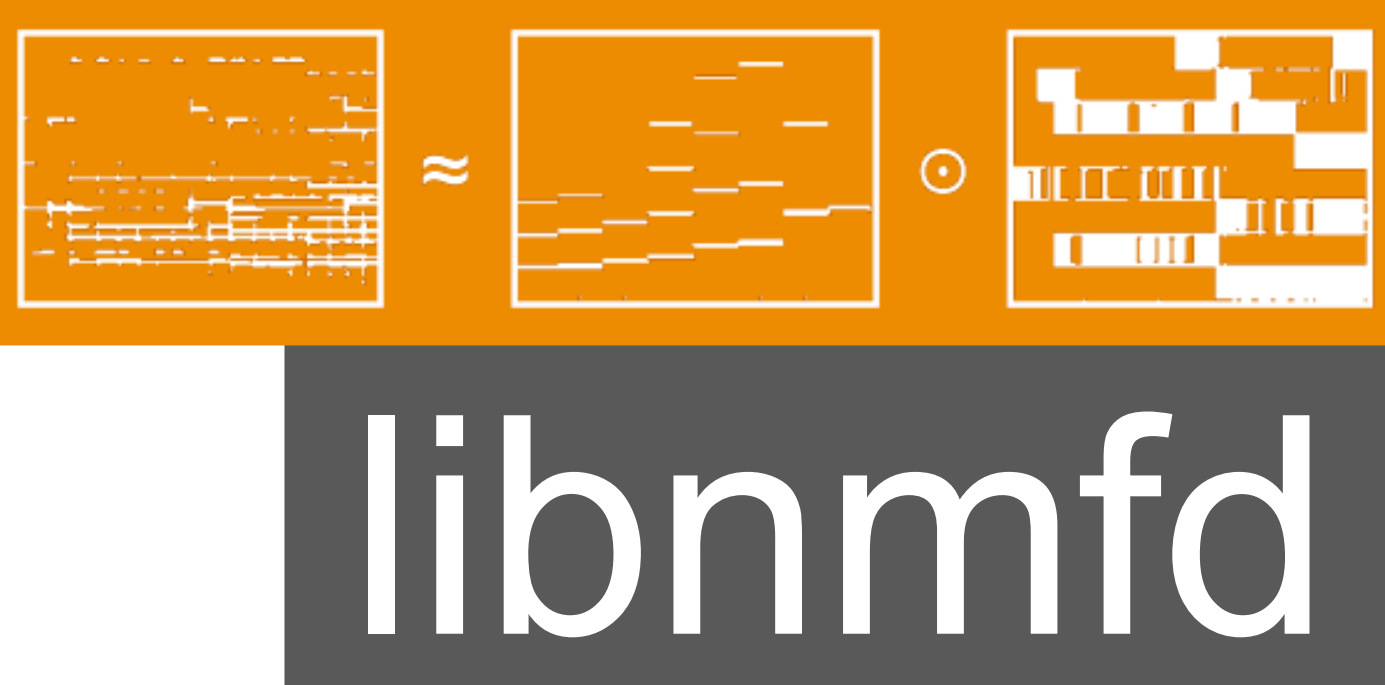 |
|
Nonnegative matrix factorization (NMF) is a family of methods widely used for information retrieval across domains including text, images, and audio. Within music processing, NMF has been used for tasks such as transcription, source separation, and structure analysis. Prior work has shown that initialization and constrained update rules can drastically improve the chances of NMF converging to a musically meaningful solution. Along these lines we present the libnmfd (NMF toolbox), which contains Python implementations of conceptually distinct NMF variants---in particular, the repository includes an overview for two algorithms. The first variant, called nonnegative matrix factor deconvolution (NMFD), extends the original NMF algorithm to the convolutive case, enforcing the temporal order of spectral templates. The second variant, called diagonal NMF, supports the development of sparse diagonal structures in the activation matrix. Our toolbox contains several demo applications and code examples to illustrate its potential and functionality. See also the AudioLabs webpage.
We outline two primary methods for setting up libnmfd using pip and setting up a dedicated environment.
Utilize Python's package manager, pip, for a straightforward installation of libnmfd:
pip install libnmfd
Note: We advise performing this installation within a Python environment (such as conda or a virtual environment) to prevent any conflicts with other packages. Ensure your environment runs Python 3.7 or higher.
Alternatively, you can establish a conda environment specifically for libnmfd by employing the
environment_libnmfd.yml file. This approach not only installs libnmfd but also includes necessary packages like
libnmfd and jupyter to facilitate running demo files. Run the following command:
conda env create -f environment_libnmfd.yml
To explore libnmfd through example notebooks:
- Install
libnmfd: Prior to cloning the repository and running the notebooks, ensure libnmfd and its dependencies are installed (as described above). - Clone the repository: Download the
libnmfdrepository to your local machine using the following git command:
git clone https://github.com/groupmm/libnmfd.git
- Install Jupyter: If not already installed via the conda environment setup, install Jupyter to run the notebooks:
pip install jupyter
- Launch Jupyter Notebook: Start the Jupyter notebook server by executing:
jupyter notebook
This will open a browser window from where you can navigate to and open the example notebooks.
The code for this toolbox is published under an MIT licence.
[1] Patricio López-Serrano, Christian Dittmar, Yiğitcan Özer, and Meinard Müller
NMF Toolbox: Music Processing Applications of Nonnegative Matrix Factorization
In Proceedings of the International Conference on Digital Audio Effects (DAFx), 2019.
[2] Christian Dittmar and Meinard Müller
Reverse Engineering the Amen Break — Score-Informed Separation and Restoration Applied to Drum Recordings
IEEE/ACM Transactions on Audio, Speech, and Language Processing, 24(9): 1531–1543, 2016.
[3] Jonathan Driedger, Thomas Prätzlich, and Meinard Müller
Let It Bee — Towards NMF-Inspired Audio Mosaicing
In Proceedings of the International Society for Music Information Retrieval Conference (ISMIR): 350–356, 2015.
[4] Paris Smaragdis
Non-negative Matrix Factor Deconvolution; Extraction of Multiple Sound Sources from Monophonic Inputs
In Proceedings of the International Conference on Independent Component Analysis and Blind Signal Separation
(ICA): 494–499, 2004.
[5] Daniel D. Lee and H. Sebastian Seung
Learning the parts of objects by non-negative matrix factorization
Nature, 401(6755): 788–791, 1999.